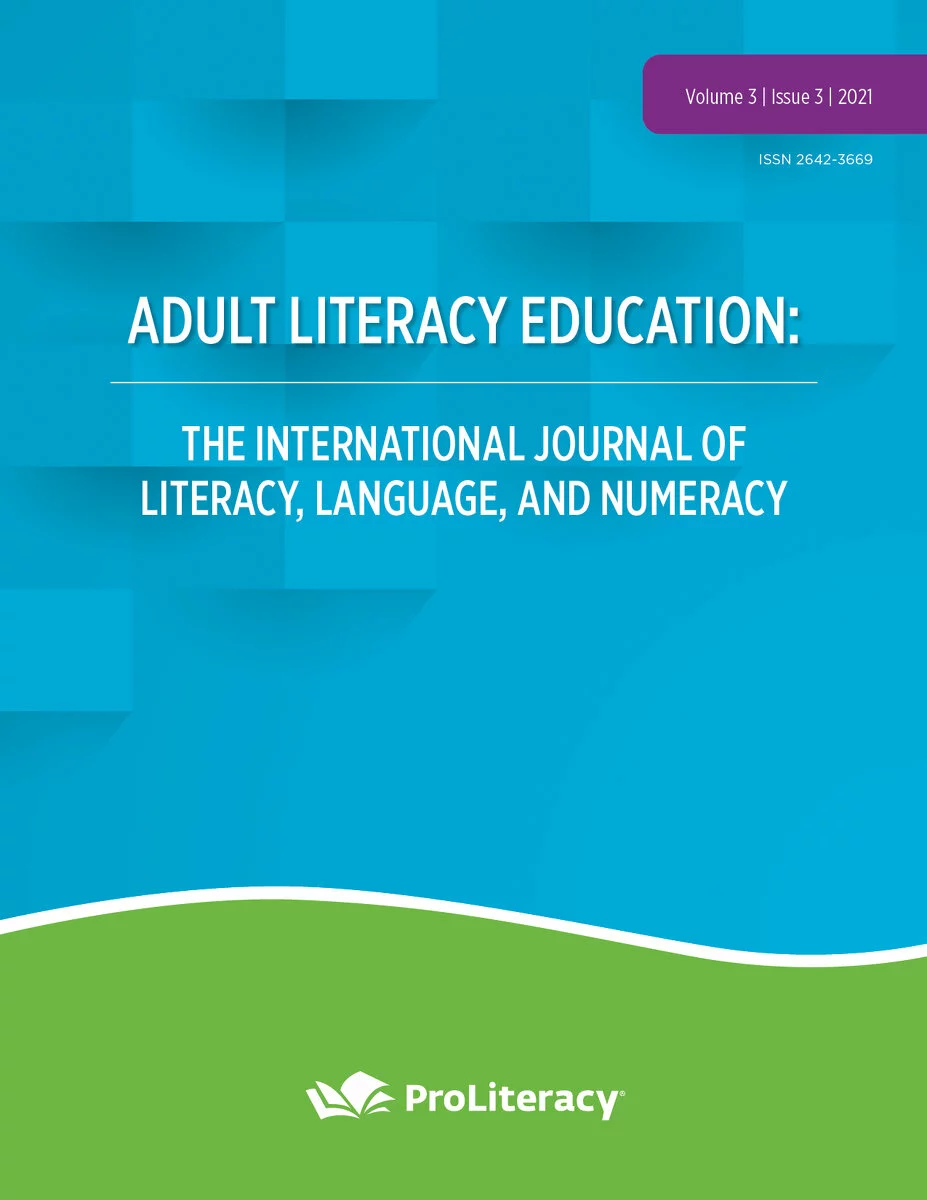Journal
The journal contains articles on diverse topics related to adult literacy education. Some of the articles discuss the importance of informed decision-making based on energy bills and the role of community support in interpreting and understanding them. Other articles explore the relationship between internet usage for health-related information and writing comments on the internet with literacy skills.
Additionally, the journal covers the connection between low- literacy skills and the ability to understand and assess political issues. The importance of professional development on data use and the integration of digital literacy skills into lesson plans are also discussed. Digital navigators are highlighted as individuals who assist and guide learners in overcoming digital inclusion challenges.
This issue of the journal includes:
Research Articles
Author(s): Jeff Evans – Middlesex University; Keiko Yasukawa – University of Technology Sydney; David Mallows – UCL Institute of Education; Jana Kubascikova – HM Revenue & Customs
Description: The authors explore the concept of the “numerate environment” and its impact on the development of adults’ numeracy skills. They discuss the importance of considering affordances at distinct levels of the environment, namely the individual, mid-level, and societal or national levels.
Author(s): Klaus Buddeberg, Gregor Dutz, Lisanne Heilmann, Christopher Stammer, Anke Grotlüschen – Hamburg University
Description: The authors question existing assumptions about the everyday life of adults with low literacy and examine the areas of life where low literacy leads to exclusion from participation, particularly in terms of health, politics, and digital practices.
Report from the Field
Author(s): David Pugh – New York State TASC Program
Description: The article discusses the author’s experience teaching writing to adult literacy students in Harlem and the Bronx. It emphasizes the importance of relevant writing prompts and highlights students’ progress in improving their writing skills.
Viewpoint
Author(s): B. Allan Quigley – St. Francis Xavier University
Description: This article discusses the marginalization of adult literacy education and proposes addressing literacy classism through funding, image improvement, and societal change empowerment for learners.
Research Digest
Author(s): Stephanie Cronen and GeMar Neloms – American Institutes for Research
Description: The article discusses the importance of using data in adult literacy education to monitor progress, adapt instruction, and improve practices. It also highlights the need for supportive practices, professional development, and involving learners in data-driven decision making.
Book Review
Author(s): Aydın Yücesan Durgunoğlu – University of Minnesota Duluth
Description: The book review discusses the challenges faced by adult immigrants with limited formal education in acquiring literacy skills in a new language and highlights the importance of understanding their unique needs and experiences.
Resource Review
Author(s): Kathy Olesen-Tracey – Illinois Community College Board
Description: The article discusses the Teaching the Skills That Matter (TSTM) initiative, which provides instructional models and resources for adult education teachers to integrate key skills such as digital literacy, financial literacy, and critical thinking into their instruction.
Technology Solutions for Adult Basic Skills Challenges
Author(s): David J. Rosen – Newsome Associates
Description: The article discusses the role of digital navigators in addressing the challenges of internet access and digital literacy skills for online learning, providing assistance through various organizations and resources.
